Abstract
It has been confirmed that the growth of intrastrain transplants of a mammary carcinoma in A/HeJ mice is inhibited to a moderate extent by giving the prospective recipient an intravenous injection of killed C. parvum 2 days before tumour inoculation. Intraperitoneal injection of C. parvum gave similar results but subcutaneous injection was less effective. Incubation of tumour cells with heterospecific antitumour globulin (ATG) in the absence of complement before inoculation sometimes but not always resulted in moderate inhibition of tumour growth. When pre-incubation of tumour cells with ATG and treatment of the host with C. parvum were combined the inhibitory effect was much greater than that produced by either procedure alone, and was roughly equivalent to reducing the dose of viable cells in control animals by a factor of 100. Since A/HeJ mice lack the fifth component of complement (C′5) it was expected that this serum would be ineffective as a source of C′ in in vitro cytotoxic tests but effective in opsonisation tests. This has been confirmed. The possible significance of this finding in relation to the synergistic effect of ATG and C. parvum is discussed.
Full text
PDF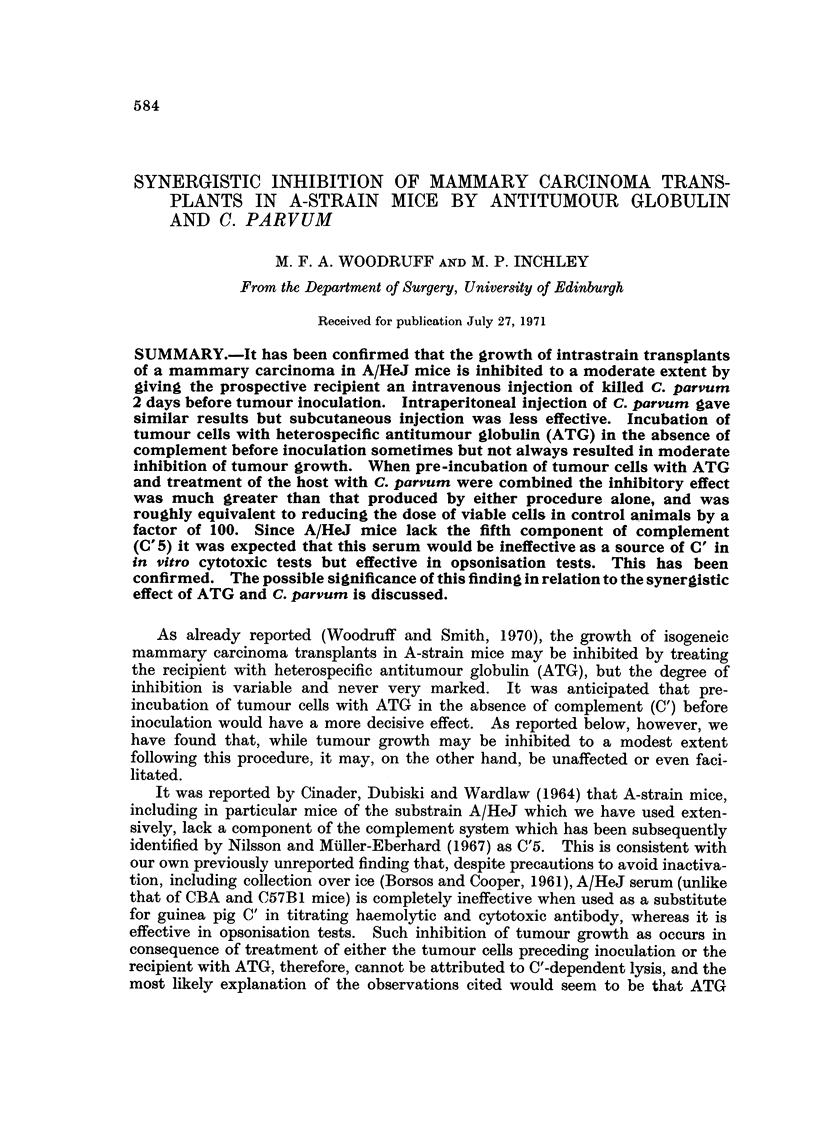
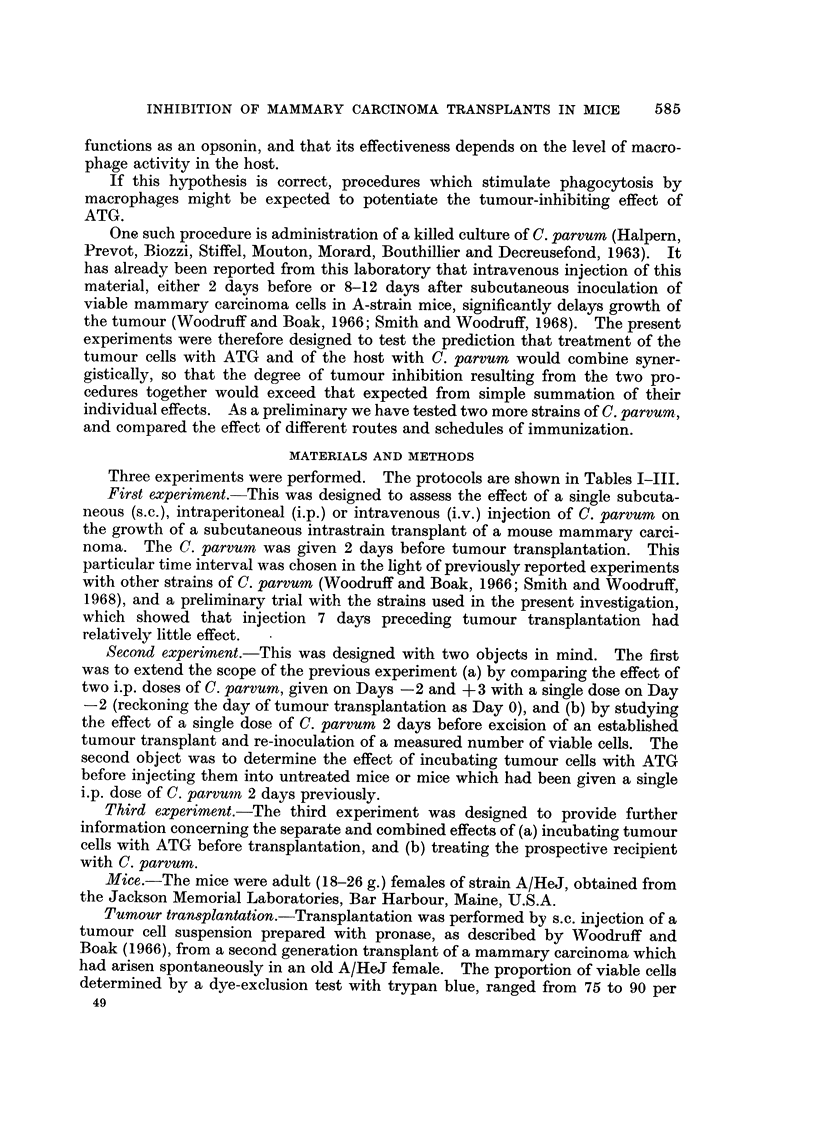
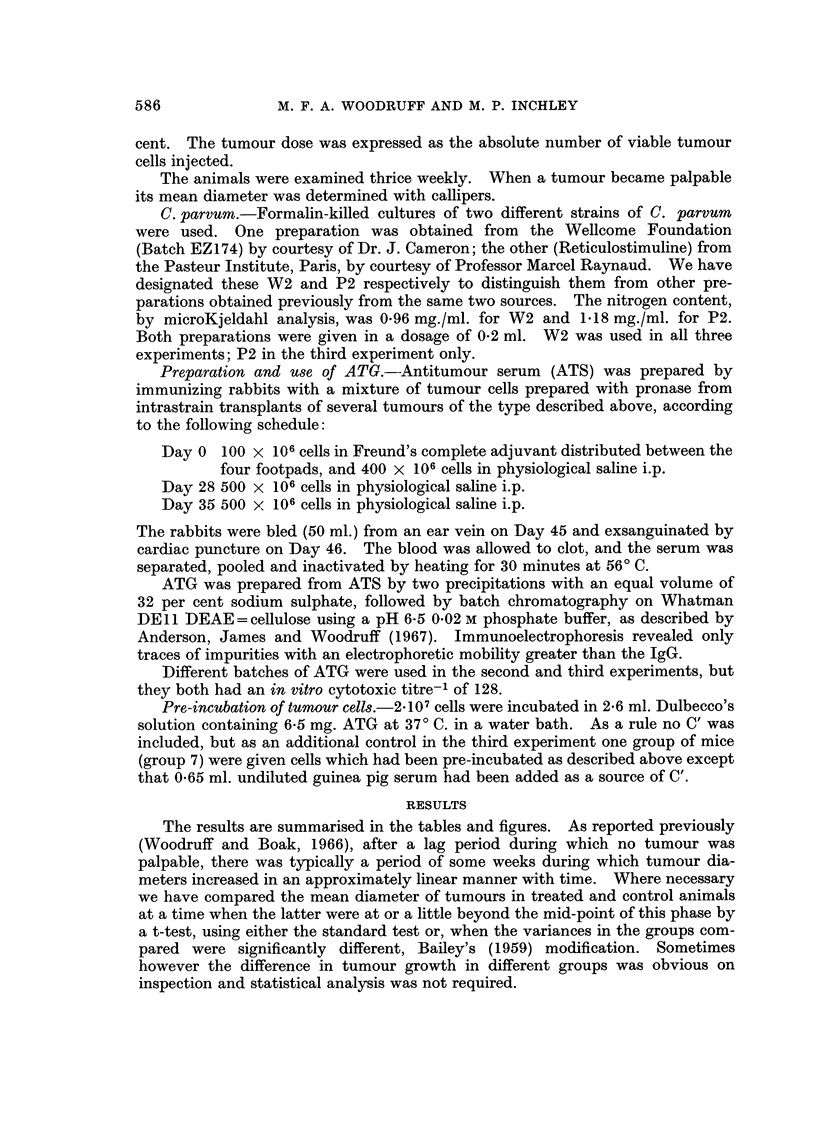
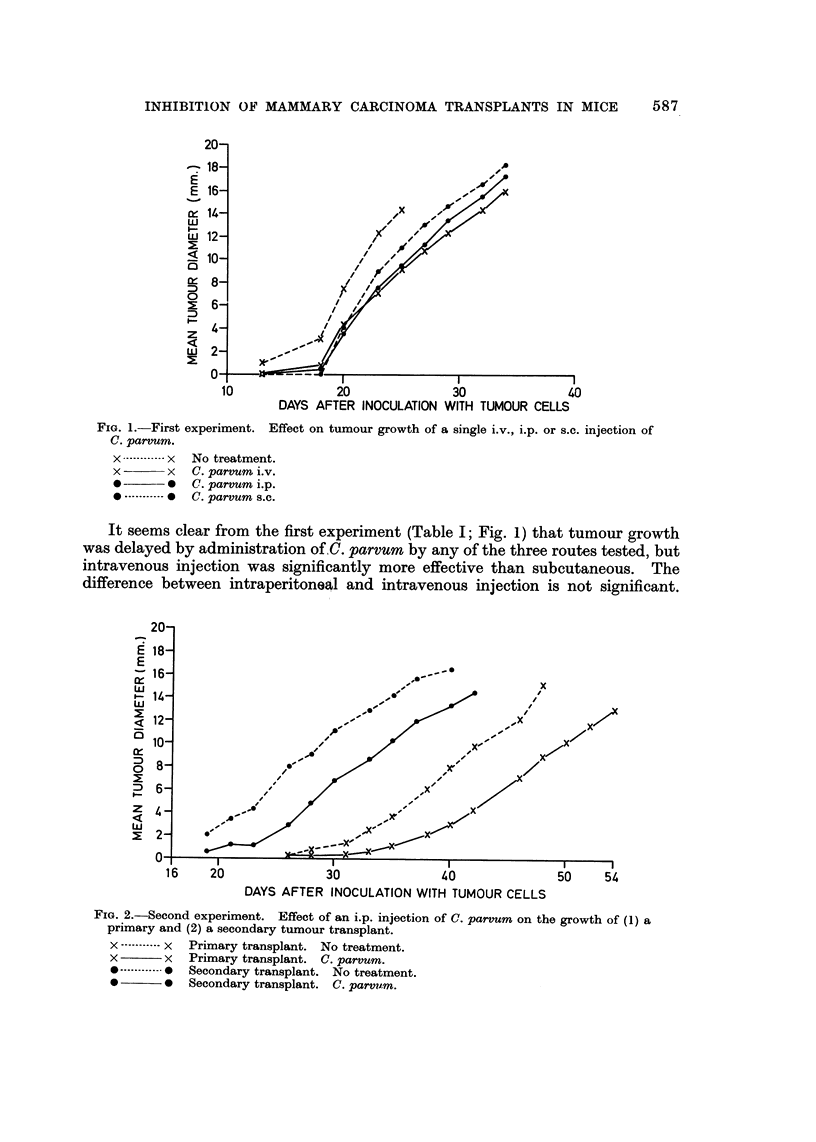
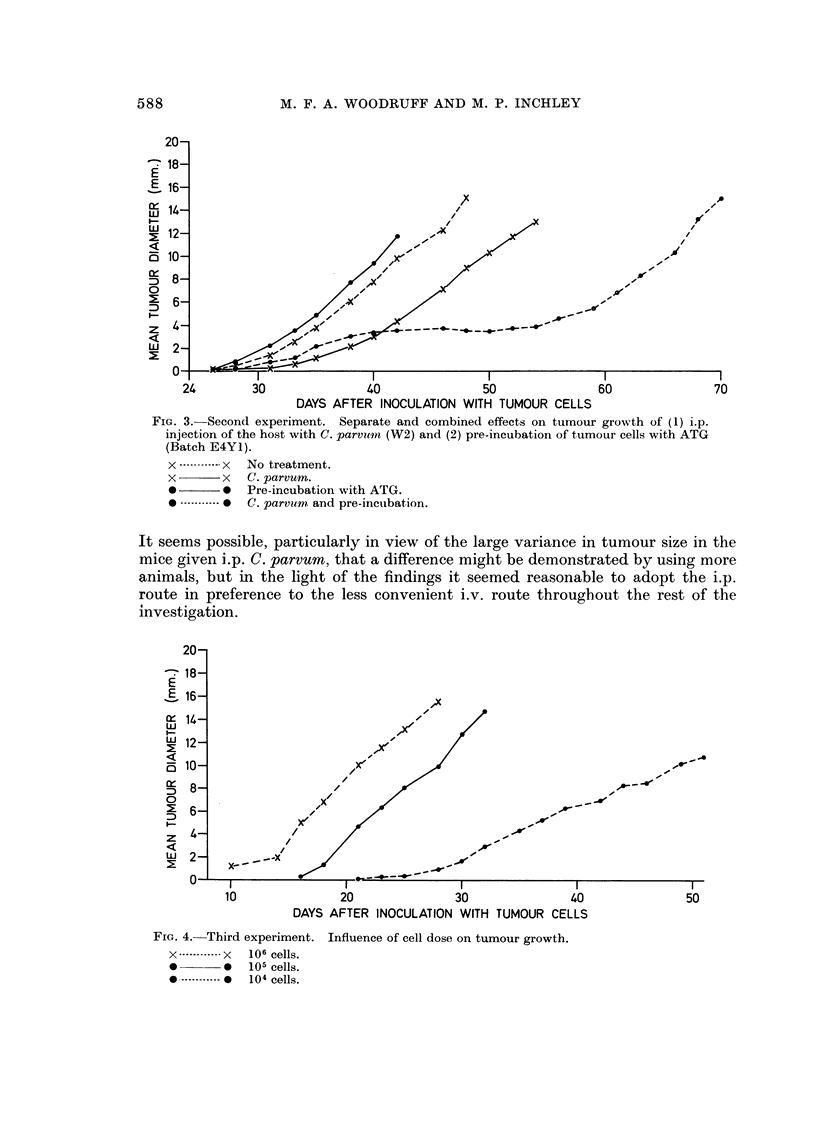
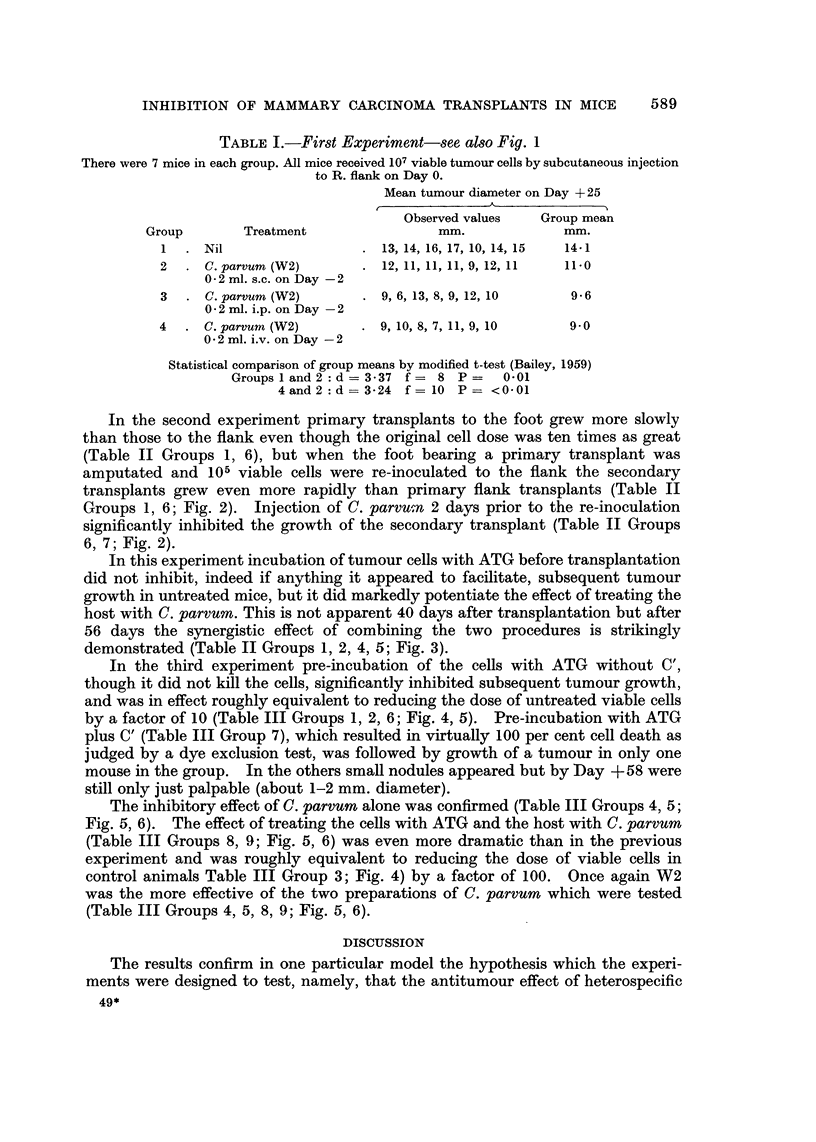
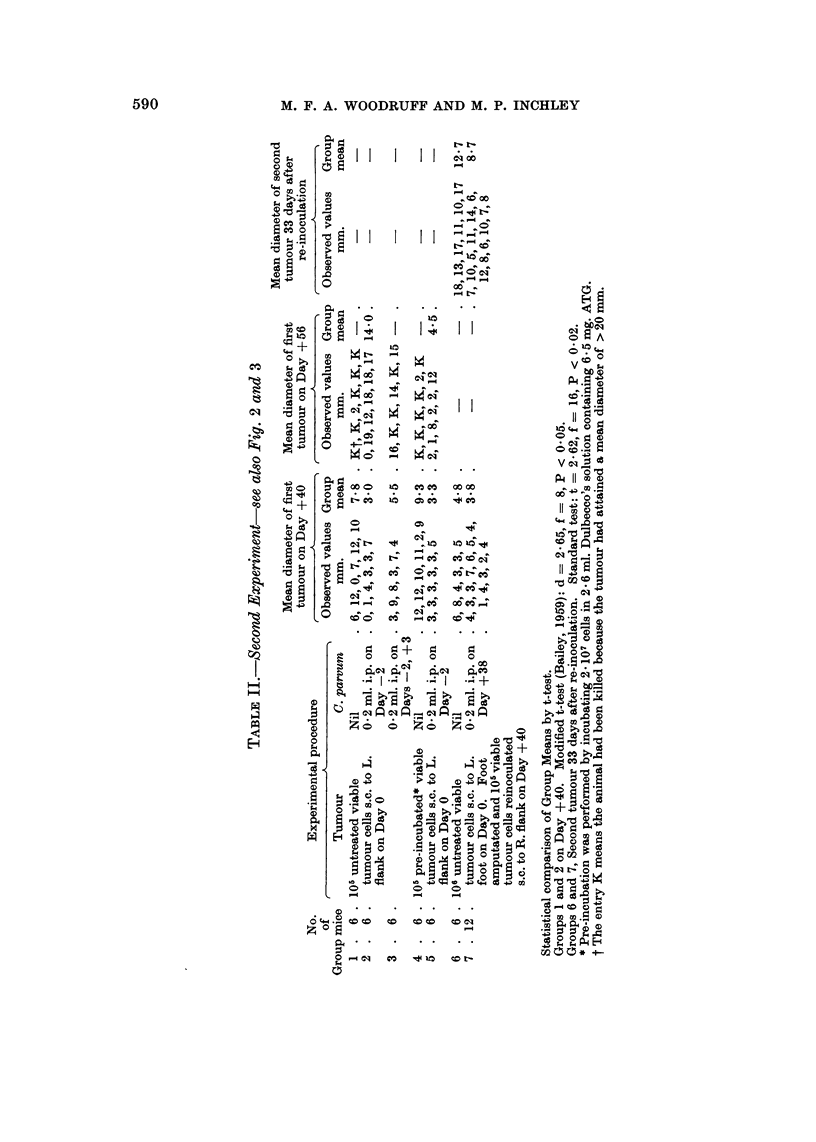
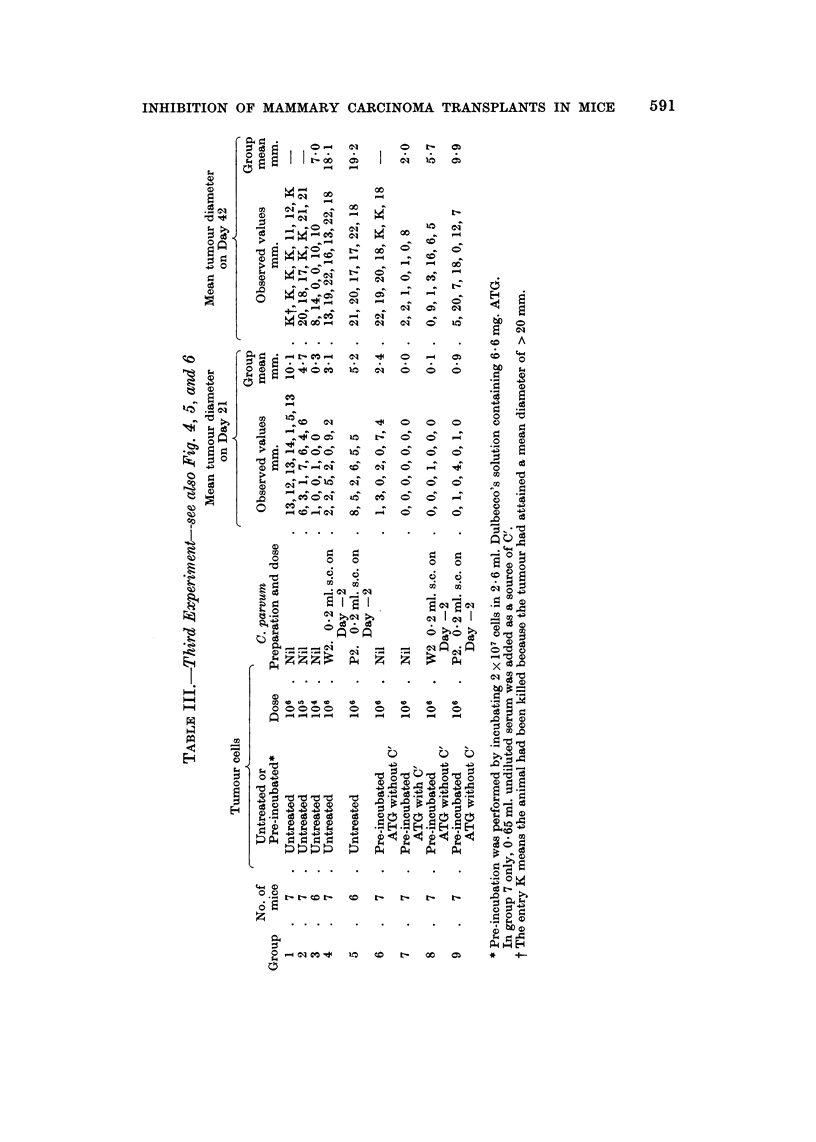
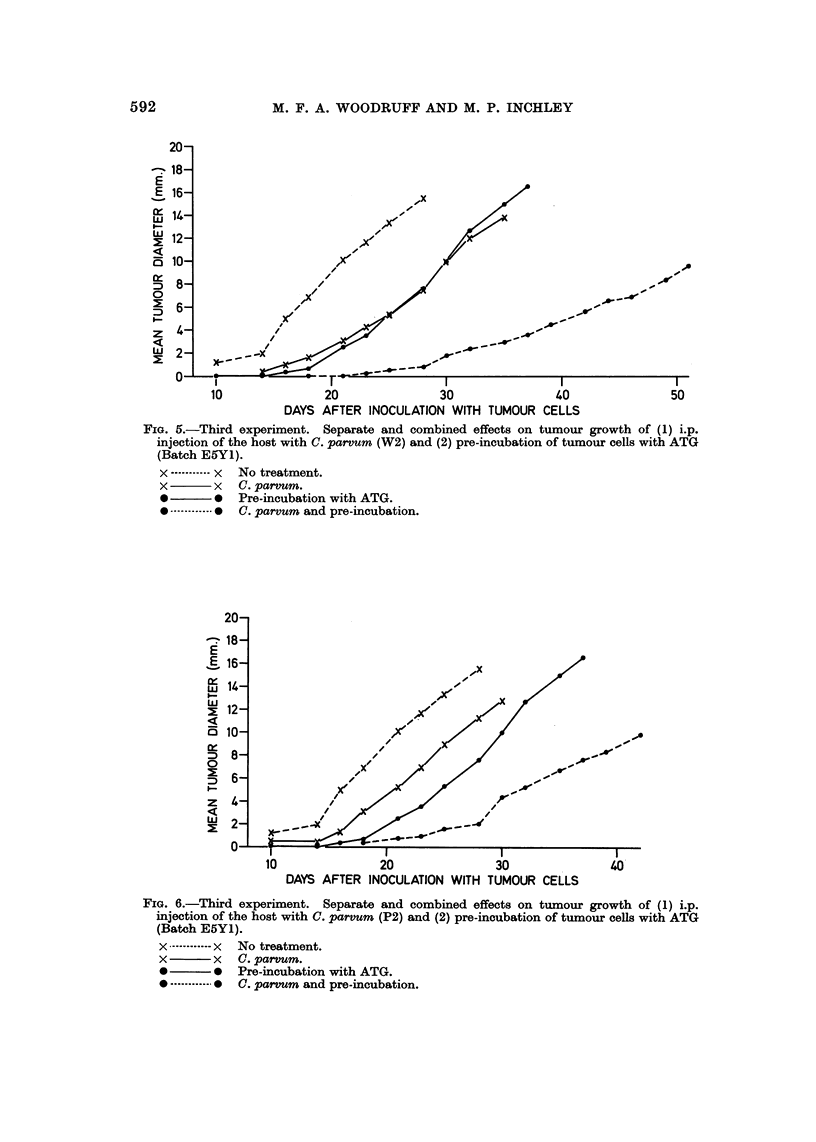
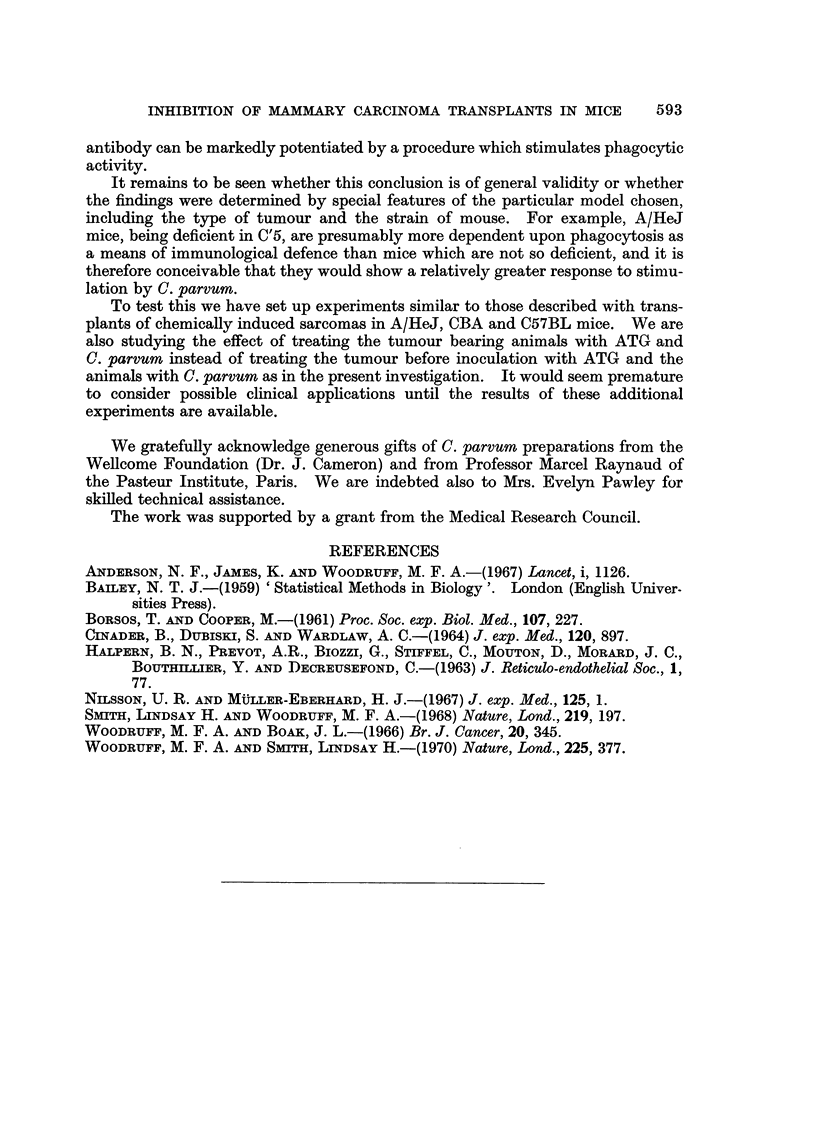
Selected References
These references are in PubMed. This may not be the complete list of references from this article.
- CINADER B., DUBISKI S., WARDLAW A. C. DISTRIBUTION, INHERITANCE, AND PROPERTIES OF AN ANTIGEN, MUB1, AND ITS RELATION TO HEMOLYTIC COMPLEMENT. J Exp Med. 1964 Nov 1;120:897–924. doi: 10.1084/jem.120.5.897. [DOI] [PMC free article] [PubMed] [Google Scholar]
- Woodruff M., Smith L. H. Cytotoxic efficiency and effect on tumour growth of heterospecific antilymphocytic and antitumour sera. Nature. 1970 Jan 24;225(5230):377–379. doi: 10.1038/225377a0. [DOI] [PubMed] [Google Scholar]


